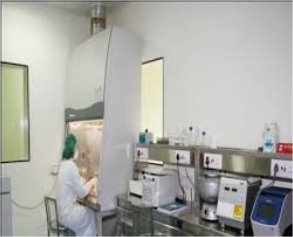No specific treatments for COVID-19 exist right now. But some of the same things you do to feel better if you have the flu — getting enough rest, staying well hydrated, and taking medications to relieve fever and aches and pains — also help with COVID-19.
Are chloroquine and hydroxychloroquine effective for treating COVID-19?
Recently, there has been considerable discussion of whether two related drugs — chloroquine and hydroxychloroquine — that have been available for decades to treat other illnesses might also be effective in treating COVID-19.
The drugs are primarily used to treat malaria and several inflammatory diseases, including systemic lupus erythematosus (lupus) and rheumatoid arthritis. No drug is perfectly safe, but these drugs are quite safe when used for just the several days they might be needed to treat COVID-19. They are also cheap, already available at our local drug stores, and relatively free of side effects.
The question, of course, is whether they are effective against the coronavirus that causes COVID-19. Are they effective in killing the virus in a laboratory dish? And are they effective in killing the virus in people? If the answer to the first question is "no," there's no point in getting an answer to the second question.
There is strong evidence that both drugs kill the COVID-19 virus in the laboratory dish. The drugs appear to work through two mechanisms. First, they make it harder for the virus to attach itself to the cell, inhibiting the virus from entering the cell and multiplying within it. Second, if the virus does manage to get inside the cell, the drugs kill it before it can multiply.
But do the drugs work in people with COVID-19? Many studies are underway to get an answer to this question, but as of March 24, 2020, only two have issued preliminary results.
One report, published in February 2020, claimed that chloroquine had been used in more than 100 patients in China who had COVID-19. The scientists stated that their results demonstrated that chloroquine is superior to the control treatment in inhibiting the worsening of pneumonia, improving lung imaging findings, eliminating the virus from the body, and shortening the duration of the disease.
These claims are exciting. However, the report provided virtually no evidence in support of the claims. First of all, this was not a randomized, double-blind controlled trial, the gold standard for research studies. Second, no evidence was presented as to how severe the pneumonia was, nor whether findings on lung x-rays or CT scans really improved. Third, although they claim the drug made the virus disappear, they didn't report what the levels of the virus were before versus after the treatment. In short, not much evidence.
Another small study was conducted by a group of scientists in southern France, a region hard hit by COVID-19. This, also, was not a randomized trial. Instead, the scientists compared 26 patients who received hydroxychloroquine to 16 who did not: after six days, the virus was gone from the body in 70% of those given the treatment, compared to only 12.5% of those who weren't. The drug appeared to be as effective in the sickest patients as in the least sick, but the study was too small to be sure about that. The study also was too small to say that people who received the treatment were protected against a prolonged illness or death.
There are many studies underway, and we should have more solid answers within a few months.
Source: Harvard Health Publishing, Harvard Medical School (https://www.health.harvard.edu/diseases-and-conditions/treatments-for-covid-19)



